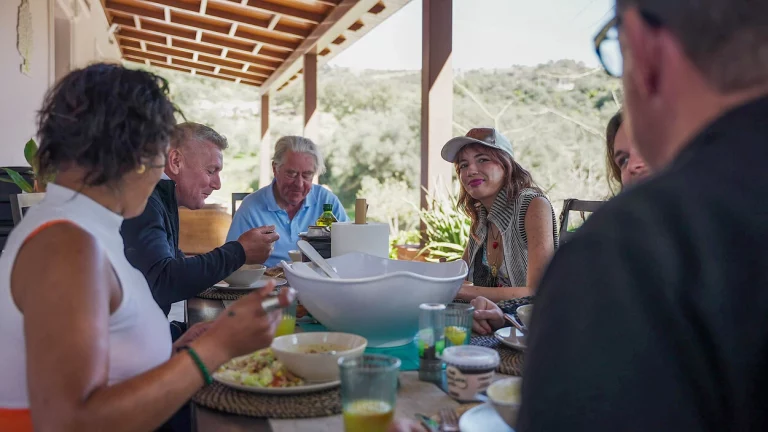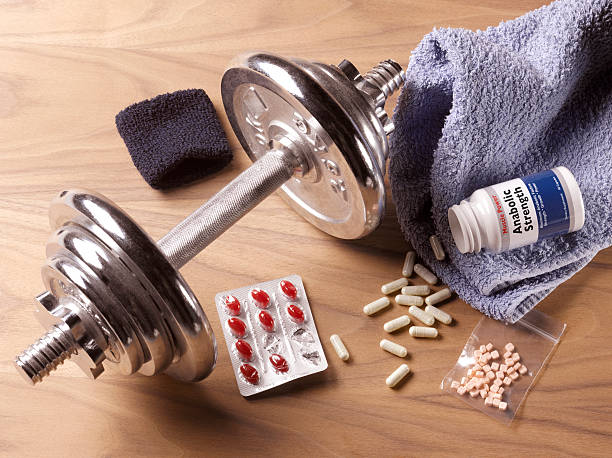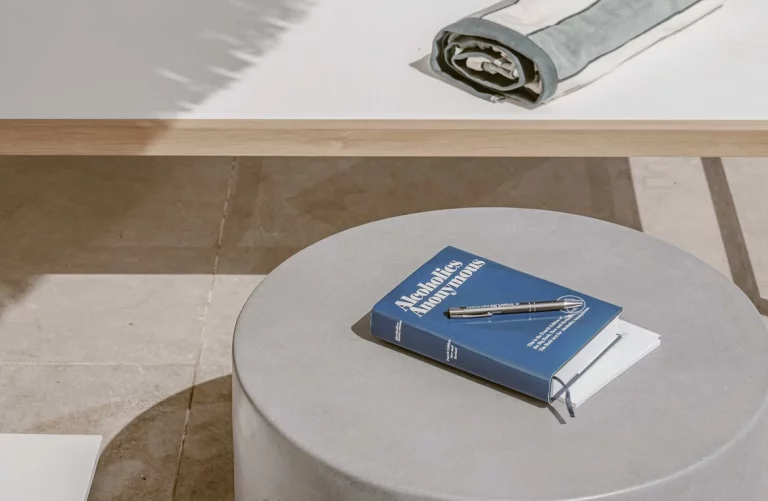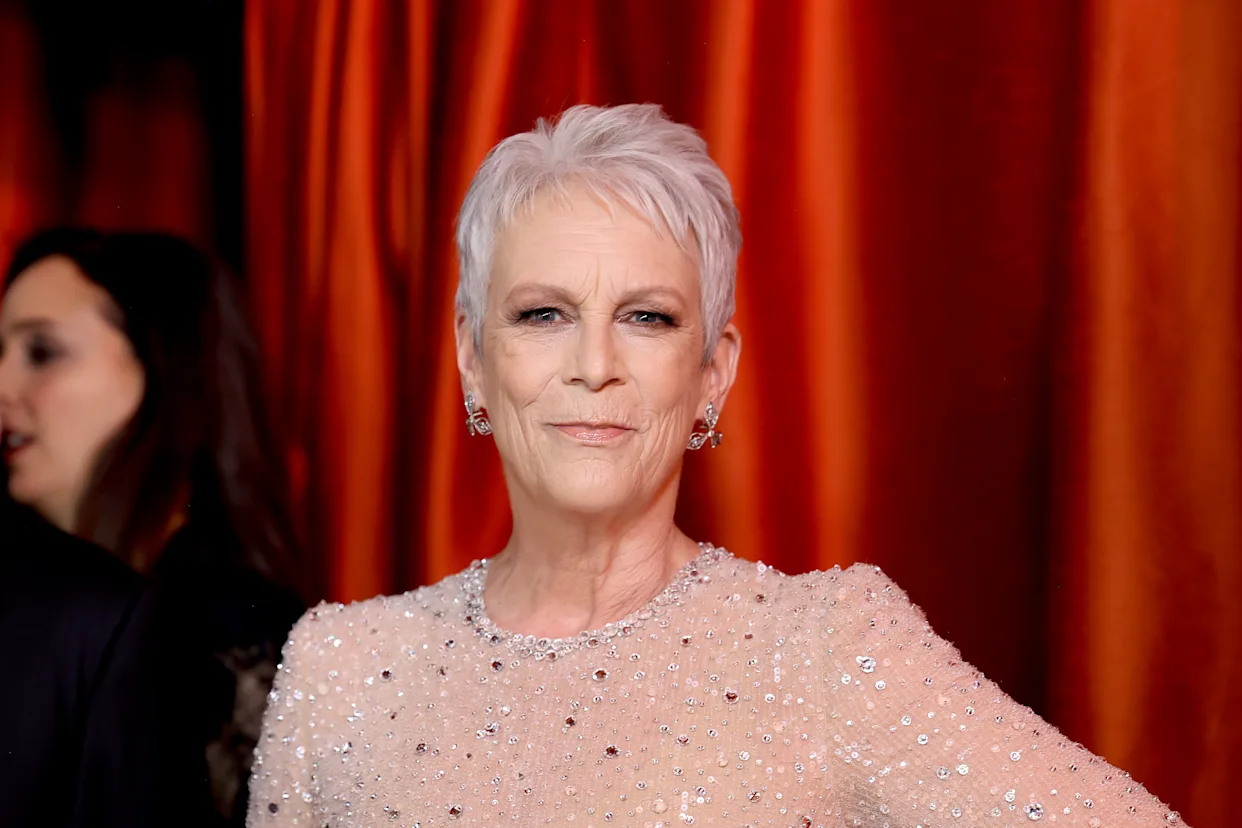
Jamie Lee Curtis’ struggles began with a prescription for an opioid following routine plastic surgery, an incident that spiralled into a decade-long battle with drug addiction, specifically vicodin. This struggle was made worse by family ties to substance abuse.
Her recovery journey began with an acknowledgment of her addiction, which she believes played a key role in her sobriety. Now sober for over 20 years, Curtis has embraced her past experiences, using them to advocate for recovery and help others facing similar battles.
Who is Jamie Lee Curtis?
Jamie Lee Curtis is an American actress, producer, and author, celebrated for her versatile roles across various genres. Born on November 22, 1958, in Los Angeles, California, she is the daughter of famed actors Janet Leigh and Tony Curtis. Jamie Lee Curtis initially gained fame as a “scream queen” due to her iconic role as Laurie Strode in the horror film Halloween (1978), which was a massive success and led to her starring in several other horror films during the early stages of her career.
Beyond horror, Curtis has showcased her talents in a wide array of film genres. Notable comedies like Trading Places (1983) and A Fish Called Wanda (1988) have earned her critical acclaim and awards, including a BAFTA for Best Supporting Actress for her role in Trading Places.
In addition to her acting career, Curtis has authored numerous children’s books, further showcasing her creative talents. She has been in a long-standing marriage to filmmaker Christopher Guest, with whom she has two adopted children. Despite the pressures of Hollywood, Curtis has also been vocal about her views on body positivity and has been an advocate for various social causes.
Jamie Lee Curtis: struggles with mental health and addiction
Her journey into addiction began unexpectedly in 1989, after she was prescribed Vicodin to alleviate pain from a minor cosmetic surgery to treat hereditary puffy eyes. Despite the mild nature of her surgery, the medication led her to dependence, mixed with alcohol use to enhance the effects of the opioid. Curtis has described the feeling of taking Vicodin as a comforting “warm-bath feeling,” a sensation that she chased for a long time.
Her battles with substances were masked by her success in Hollywood, where she continued to perform in major roles across a variety of films. Yet, behind the scenes, she seriously struggled with the addiction that also affected her family. Both her father, iconic actor Tony Curtis, and her half-brother, Nicholas, had their own struggles with substance abuse, with her half-brother tragically dying from a heroin overdose.
Her turning point came in 1999, after she read an article about Vicodin addiction, which she says mirrored her own struggles. A revelation followed, which led her to attend her first recovery meeting. Since then, she has achieved over 25 years of sobriety, a milestone she openly celebrates and shares to inspire others. She emphasises the importance of community and mutual support in recovery, often sharing messages of encouragement and solidarity with those who are struggling.
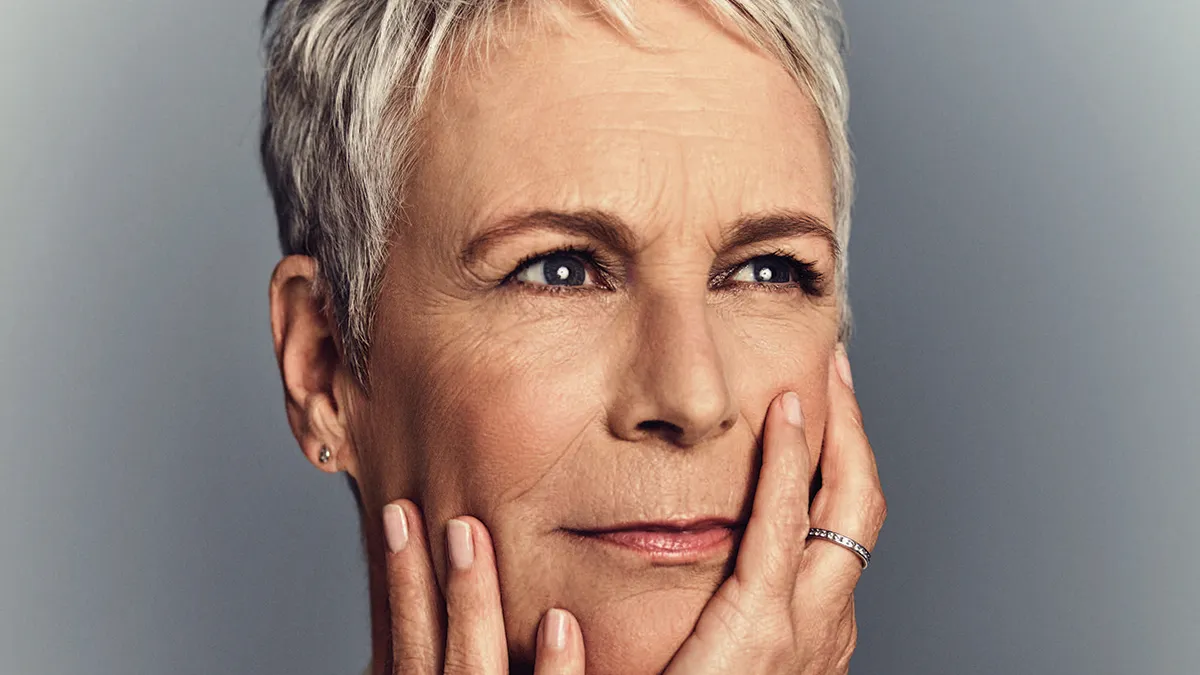
Impact of fame on Jamie Lee Curtis’ health
Jamie Lee Curtis’s career in the entertainment industry has brought her immense fame, but this spotlight has also had a profound impact on her personal health and well-being. Known for her roles in iconic films and her outspoken nature, Curtis has navigated the pressures and challenges of celebrity status, which have influenced her physical and mental health over the years.
In the early years of her career, Curtis struggled with the immense pressure to maintain a certain image, which is a common challenge among celebrities. This expectation to conform to Hollywood’s beauty standards led her to develop a negative body image and low self-esteem. Curtis has openly discussed her battles with addiction, which were exacerbated by the stress and scrutiny of being in the public eye. As mentioned, she has revealed that she became addicted to painkillers after a routine cosmetic surgical procedure, a dependency that went unnoticed by her friends and family for a long time. This aspect of her life highlights the often overlooked pressures that come with fame and how they can manifest in harmful ways.
The constant media attention and the pressure to perform can take a substantial mental toll on public figures. Curtis has been vocal about her experiences with anxiety and depression, aiming to destigmatize these issues by sharing her own struggles: “There are no boundaries that people won’t cross… We’re in a bit of a Wild West thing with the media, and, I think, it’s just kind of like no holds barred – the Internet. You know, there are no criteria on the Internet… I’ve chosen a public life to express myself, not to tell what I do with my husband in bed, not to do, to talk about my parents and my family life.”
The support systems—or lack thereof—that celebrities encounter also play a crucial role in their health outcomes. Jamie Lee Curtis has credited her recovery and sustained well-being to a robust support network of family and friends, as well as professional help.
Jamie Lee Curtis: Recovery and advocacy
Her journey toward sobriety began over two decades ago, a battle she fought with the support of Alcoholics Anonymous (AA) meetings and a strong community around her. Curtis’s commitment to her recovery has been a beacon of hope and a testament to the possibility of lasting sobriety.
In addition to her personal recovery, Jamie Lee Curtis has become an outspoken advocate for sobriety and the recovery process. She has publicly shared her story numerous times, hoping to reduce the stigma around addiction and encourage others to seek help. Curtis credits her sobriety to the support she received from AA and often speaks on the transformative power of these meetings:
Curtis’s advocacy extends beyond just her speeches and interviews; she has also been recognized for her efforts in promoting recovery. Her quotes on recovery emphasise the importance of acknowledging one’s struggles, the bravery required to face them, and the continuous effort needed to maintain sobriety: “To call yourself an alcoholic or a drug addict is a badge of honour. It is a way of acknowledging something that is a profound statement and can be, for many people, life-changing. Because the secret, the shameful secret, is the reason why it is such a pervasive illness in our industry — in every industry, in every walk of life, in every country in the world. It is the secret shame that keeps people locked up in their disease.”
Through her open dialogue about her struggles and her ongoing advocacy for recovery programs, Jamie Lee Curtis continues to inspire many who fight their own battles with addiction. Her message is clear: recovery is possible, and support is available.
If You’re Struggling With Addiction, You’re Not Alone
At InnerLife Recovery, we specialize in treating addiction, mental health disorders, and eating disorders in a compassionate, private, and personalized setting.
If you or a loved one is struggling with opioids, alcohol, substance use, or anxiety, our experienced team can help. We offer holistic, trauma-informed treatment that addresses both the addiction and the underlying emotional pain.
📞 Reach out today to learn more about our residential treatment programs. We’re here 24/7h available to help you recover and rebuild.
Contact us today for an obligation-free confidential consultation.

